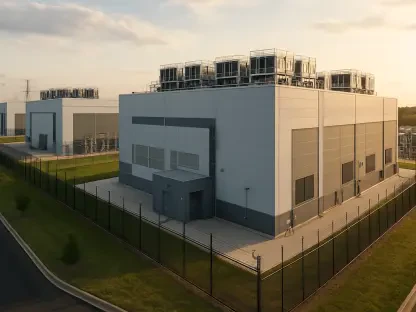As we dive into the complex world of securities law and high-profile litigation, I’m thrilled to sit down with Kofi Ndaikate, a seasoned expert in Fintech with deep knowledge of regulatory challenges, blockchain, and cryptocurrency. Today, we’re unpacking the recent courtroom battle between Elon Musk and the Securities and Exchange Commission (SEC) over his delayed disclosure of a Twitter stake. Our conversation explores the intricacies of Musk’s failed attempt to relocate the lawsuit, the SEC’s allegations, and the broader implications of this case within the fintech and regulatory landscape.
Can you walk us through the core issue of Elon Musk’s request to move the SEC lawsuit from Washington, D.C. to Texas?
Absolutely, Jay. Musk argued that defending himself in D.C. was incredibly burdensome due to his packed schedule. He described himself as an “incredibly busy individual” working over 80 hours a week, often sleeping at the office or factory. He felt that litigating in the nation’s capital would disrupt his ability to manage his commitments, and Texas—where he lives in Austin and bases major companies like Tesla and SpaceX—would be far more convenient for him.
How did the judge respond to Musk’s concerns about the inconvenience of litigating in D.C.?
Judge Sparkle Sooknanan acknowledged Musk’s concerns about convenience, stating she took them seriously. However, she pointed out that Musk, as one of the wealthiest individuals in the world, has considerable resources to manage such challenges. She also noted that Musk spends at least 40% of his time outside Texas, including significant time in D.C. this year while running the Department of Government Efficiency. Essentially, she didn’t see his location as a valid reason to move the case.
What was the judge’s perspective on the court system’s capacity to handle this case in D.C. compared to Texas?
The judge made an interesting point about caseloads. She highlighted that Texas courts are dealing with heavier dockets compared to her own court in D.C. She assured that her court could handle the case with “reasonable alacrity,” meaning she could move things along efficiently without the delays Musk might face elsewhere. It was a practical argument against relocation.
Musk also proposed moving the case to Manhattan as an alternative. What was the reasoning behind that suggestion?
Musk suggested Manhattan because of its connection to other legal actions tied to him and Twitter. Specifically, former Twitter shareholders are suing him there, so he likely saw it as a way to consolidate related litigation or at least argue for a venue with some relevance to his business dealings. It was a strategic alternative to Texas, though still not in D.C.
How did the judge react to the idea of transferring the case to Manhattan?
Judge Sooknanan wasn’t swayed by the Manhattan proposal either. She rejected it outright, sticking to her stance that D.C. was the appropriate venue for the SEC’s lawsuit. Her reasoning didn’t dive into the specifics of the Manhattan cases but focused on keeping the case where it was originally filed, maintaining jurisdictional consistency.
Let’s shift to the heart of the SEC’s lawsuit. What exactly are they accusing Musk of doing with his Twitter stake?
The SEC is alleging that Musk delayed disclosing his initial 5% stake in Twitter back in early 2022 by 11 days. According to them, this delay allowed Musk to buy over $500 million worth of shares at artificially low prices before the market was aware of his growing ownership. They claim this lack of transparency hurt unsuspecting investors who didn’t have the full picture of his involvement.
What kind of penalties is the SEC seeking as a result of these allegations?
The SEC is pushing for significant consequences. They want Musk to pay a civil fine, though the exact amount isn’t specified in public filings. More strikingly, they’re seeking to have him disgorge around $150 million, which they argue represents the profits or savings he gained from buying shares at those lower prices due to the delayed disclosure. It’s a hefty financial penalty aimed at holding him accountable.
How has Musk responded to these claims from the SEC so far?
Musk isn’t taking this lying down. He’s actively seeking to dismiss the case, challenging the SEC’s allegations head-on. While there’s no public comment from his legal team immediately following the judge’s ruling on the venue, his push to relocate the lawsuit and his broader legal strategy show he’s prepared to fight. It’s clear he’s not accepting the SEC’s narrative without a battle.
Given Musk’s deep ties to Texas, how do you think that influenced his legal strategy in this case?
Musk’s connection to Texas likely played a big role in his request to move the case. He resides in Austin, and his major ventures—Tesla, SpaceX, and the Boring Company—are headquartered there. I think his team saw Texas as a more favorable or at least more convenient venue, both logistically and perhaps in terms of local sentiment or judicial leanings. It’s not uncommon for defendants to seek a home-field advantage in litigation, and Texas might have felt like that for Musk.
Looking at the bigger picture, can you provide some context on Musk’s acquisition of Twitter and how it ties into this lawsuit?
Certainly. Musk completed his purchase of Twitter in October 2022 for a staggering $44 billion, later rebranding it as X. This SEC lawsuit focuses on his actions earlier that year, when he was building up his stake in the company. The delayed disclosure issue is a piece of the broader narrative around his takeover, where every move he made was under intense scrutiny. It’s a reminder of how regulatory oversight can intersect with high-stakes corporate acquisitions, especially for someone as visible as Musk.
What is your forecast for how this legal battle between Musk and the SEC might unfold in the coming months?
I think we’re in for a prolonged fight. Musk has the resources and determination to challenge the SEC at every turn, and dismissing a case like this isn’t easy. On the SEC’s side, they’re unlikely to back down given the precedent it could set for disclosure rules in the fintech and public markets space. We might see more procedural skirmishes before getting to the meat of the allegations, and a settlement could be on the table if both sides see a drawn-out trial as too costly. But with Musk’s track record, predicting compliance or compromise is tricky—I expect some surprises along the way.









